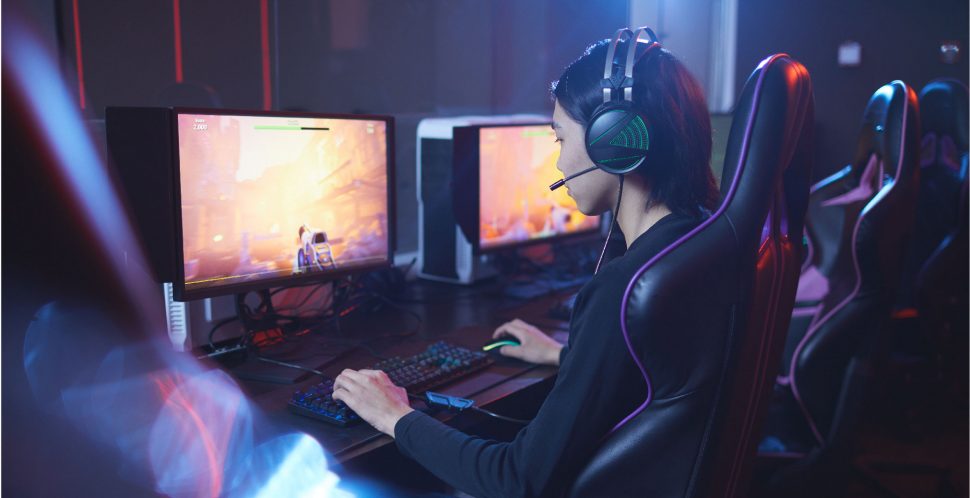
Check Out 10 Essential Skills for Video Game Localizers
Video game localizers involve adapting game content from one region to another, ensuring it’s appropriate for the target audience. This includes translating text and adjusting game elements, such as packaging, manuals, and artwork. As a result, some content may need to be altered or removed altogether due to cultural or legal considerations.
As a video game localizer, your primary objective is to ensure that the localized version seamlessly integrates with the target market, resembling a locally developed game. Therefore, achieving this requires a range of skills and knowledge. While it may seem straightforward, video game localizers are a party who multifaceted processes that demand specific competencies. Below are 10 essential skills for success in this field.
Fluency in Multiple Languages

Fluency in multiple languages is indispensable for video game localizers owing to the varied linguistic preferences of gaming communities worldwide. Why so? Check out the reasons below!
Precise Translation
The localizers must accurately translate game content from the source language to the target language. Fluency ensures that the essence, tone, and context of the original text remain intact in the translation.
Tackling Localization Challenges
Video games often feature intricate narratives, dialogues, and world-building elements that demand more than literal translation. Fluency empowers localizers to effectively navigate these complexities, making informed decisions on conveying concepts, humor, and references in the target language while honoring the original intent.
Enhancing Player Engagement
Given that games rely heavily on text for storytelling, instructions, and dialogue, fluency in multiple languages allows localizers to craft immersive, captivating experiences for players across diverse linguistic backgrounds, enriching the overall gaming experience.
Cultural Understanding
Cultural comprehension stands as a pivotal component of video game localization, imperative for ensuring resonance with diverse global audiences. Below is an elucidation of why cultural understanding holds paramount importance for video game localizers:
Contextual Adaptation
Video games often incorporate references, humor, and themes rooted in the source culture. Localizers well-versed in cultural nuances can aptly interpret these elements and modify them to resonate with the target audience without diluting the essence of the original content.
Avoiding Offense
Cultural norms and sensitivities vary across different societies. A profound grasp of cultural intricacies enables localizers to identify potentially offensive content and make necessary adjustments, ensuring cultural sensitivity and respect toward the target audience.
Translating Idioms and Expressions
Idioms, slang, and cultural references pose challenges in translation. Cultural understanding enables localizers to effectively translate these elements, ensuring coherence and resonance with players in the target language.
Character and World Building
Cultural context significantly influences character development and world-building in video games. Localizers must comprehend the cultural backdrop of characters and settings to accurately portray their personalities, motivations, and interactions in the localized version of the game.
Maintaining Authenticity
Video game Localizers must strike a delicate balance between cultural adaptation and preserving the authenticity of the original game. Cultural understanding facilitates informed decision-making regarding which elements to alter and which to retain, upholding the integrity of the game's narrative and setting. Enhancing Immersion. Immersion plays a pivotal role in the gaming experience. Cultural understanding allows localizers to authentically represent cultural nuances, traditions, and references, thereby immersing players in the game world and augmenting their overall enjoyment and engagement.
Game Design Knowledge

Understanding game design principles is crucial for video game localizers, as it grants insight into a game's mechanics and intentions. Here’s why game design knowledge is advantageous for video game localizers:
Maintaining Gameplay Flow
Localizers versed in game design can seamlessly integrate translated text without disrupting gameplay flow. Understanding the game's interconnected elements enables them to adapt content for smooth integration with the player's experience.
Adapting User Interfaces
Proficiency in game design enables localizers to adeptly modify user interfaces (UI) and menus for diverse languages and cultures. With an understanding of UI design principles, they ensure intuitive layout, navigation, and functionality in the localized game.
Preserving Game Mechanics
Video game localizers must accurately translate and retain the original game's core mechanics and gameplay elements. Game design knowledge equips them to identify and effectively convey key gameplay features to the target audience.
Translating Game Mechanics
Certain game mechanics rely heavily on textual instructions. Localizers with game design expertise can accurately translate these instructions while ensuring clarity and comprehension for players in the target language.
Maintaining Consistency
Game design proficiency aids localizers in upholding consistency throughout the localized game. Understanding the game's visual style, tone, and narrative elements ensures that translated content aligns harmoniously with the overall aesthetic and storytelling.
Read also: What is the Impact of AI in Translation and Localization?
Excellent Writing Skills
Exceptional writing proficiency is paramount for video game localizers, enabling them to effectively convey the game’s narrative, instructions, and dialogues with clarity and engagement. Continue reading to check out why it’s an essential matter.
Clarity and Coherence
Video game localizers must ensure players understand the storyline, objectives, and instructions clearly. Proficient writing skills empower localizers to produce translations that are easily comprehensible, minimizing confusion and enriching the gaming experience.
Maintaining Tone and Style
Each game possesses a unique tone and style crucial for its identity and atmosphere. Localizers adept in writing can accurately capture and sustain the original game's tone and style, preserving its intended mood and ambiance.
Character Development and Dialogue
Characters are pivotal in many video games, contributing significantly to immersion. Strong writing skills are necessary to effectively depict character growth and dialogue in the target language, ensuring characters remain captivating and relatable to players.
Creativity
Overcoming linguistic and cultural barriers in video game localization demands creative solutions. Localizers with superb writing skills can navigate these challenges with creativity and flexibility, maintaining the quality and effectiveness of the translated content.
Attention to Detail

Attention to detail is pivotal in video game localization, guaranteeing precision, uniformity, and excellence throughout the translation process. Read on to find out the elaboration!
Consistency
Maintaining consistency is paramount for a seamless gaming experience. Localizers must ensure that terminology, character names, and other elements remain consistent to prevent confusion and sustain player immersion.
User Interface and Graphics
Apart from textual content, video game localizers must meticulously handle user interface elements, graphics, and visual assets. This includes ensuring that on-screen text fits within designated spaces and that visual elements align with the target audience's culture.
Bug Testing and Quality Assurance
Localizers often engage in bug testing and quality assurance processes to detect and address issues during localization. Attention to detail is vital for identifying linguistic or formatting errors and ensuring the final product meets quality standards.
Legal and Regulatory Compliance
Video game localization may involve adhering to legal and regulatory requirements in various regions. Localizers must meticulously ensure that the localized game complies with relevant laws and regulations, such as age ratings and content restrictions.
Technical Proficiency
Technical expertise is indispensable for video game localizers as it empowers them to navigate the intricate technological aspects inherent in the localization process. Here’s why technical proficiency is paramount for the practitioners:
Understanding Localization Tools
Video game localization frequently entails employing specialized software tools and platforms. Proficiency in technical matters enables localizers to adeptly utilize these tools for tasks such as text extraction, translation management, and asset integration, thereby enhancing the efficiency of the localization workflow.
File Formats and Encoding
Video game files encompass a variety of formats, necessitating a comprehensive understanding for efficient handling. Technical proficiency equips localizers to manage formats such as XML, JSON, CSV, and proprietary ones, as well as to address encoding issues that may arise when dealing with different languages.
Audio and Video Localization
Many video games incorporate voiceovers, subtitles, and other audiovisual components that require localization. Technical proficiency enables localizers to proficiently employ audio and video editing software, ensuring accurate synchronization of translations with audiovisual content.
Version Control and Collaboration
Video game localization projects often entail collaboration with multiple team members, necessitating effective utilization of version control systems. Technical proficiency empowers localizers to efficiently manage changes, monitor progress, and collaborate seamlessly with translators, editors, and developers.
Adapting to New Technologies
The video game industry is dynamic, with new technologies and platforms continually emerging. Technical proficiency enables localizers to swiftly adapt to these changes, whether it involves localizing games for virtual reality platforms, mobile devices, or cloud-based gaming services.
Adaptability

Adaptability is a fundamental quality for video game localizers, allowing them to adeptly address the dynamic challenges and diverse demands encountered throughout the localization process. Get to know the details below!
Changing Project Requirements
Localization projects are subject to evolution, influenced by shifts in scope, deadlines, or client preferences. Localizers must flexibly adapt their approaches and priorities to effectively meet the evolving project demands.
Technical Challenges
Video game localization often entails navigating intricate technical tools and platforms. Localizers must demonstrate adaptability in acquiring new software skills and technologies to efficiently address any technical hurdles encountered during the localization process.
Content and Contextual Changes
Games may undergo revisions or updates post-localization, necessitating adjustments to translations. Additionally, localizers must remain attuned to cultural or contextual shifts within the game to maintain authenticity and relevance in their translations.
Collaboration and Communication
Localization projects involve collaboration with diverse stakeholders, including developers, translators, and project managers. Localizers must adapt their communication and collaboration styles to effectively engage with different team members and ensure seamless project execution.
Emerging Technologies and Platforms
The video game industry continually evolves with new technologies, platforms, and gaming trends emerging regularly. Localizers must demonstrate adaptability by staying abreast of industry developments and acquiring new skills to effectively localize games for evolving platforms and technologies.
Collaboration Skills
Collaborative abilities are indispensable for video game localizers, as they frequently engage within multidisciplinary teams to ensure the success of localization projects. Here’s an elucidation of why these skills are pivotal for video game localizers:
Engagement with Diverse Teams
Video game localization necessitates cooperation with a spectrum of stakeholders, encompassing developers, translators, writers, editors, and project managers. Localizers must proficiently communicate and collaborate with these individuals to ensure alignment regarding project objectives, timelines, and quality benchmarks.
Effective Communication
Successful collaboration hinges on the clarity and efficacy of communication. Localizers must proficiently express their ideas, feedback, and concerns to team members, while also actively listening to others' viewpoints to foster fruitful discussions and problem-solving.
Cultural Awareness
Collaboration often involves interactions with individuals from varying cultural backgrounds. Localizers must demonstrate cultural sensitivity and respect for diverse perspectives to cultivate an inclusive and harmonious work environment.
Delegation and Task Management
Localization projects entail orchestrating various tasks and responsibilities among team members. Localizers with adept collaboration skills can effectively delegate tasks, monitor progress, and ensure coherence across all phases of the project lifecycle.
Conflict Resolution
Disagreements or conflicts may arise during the localization process owing to divergent opinions, priorities, or approaches. Localizers proficient in collaboration can navigate such situations diplomatically, seeking amicable resolutions and preserving positive working relationships with team members.
Feedback Integration and Refinement
Collaboration entails a continuous exchange of feedback on ongoing work, spanning translations, UI designs, or gameplay elements. Localizers must embrace feedback from team members and stakeholders, integrating constructive criticism to enhance and refine their work iteratively.
Research Skills
Research skills play a vital role for video game localizers by ensuring precise and culturally suitable translations and adaptations. Here's why these skills are crucial for video game localizers:
Technical Terminology
Video games often incorporate technical jargon related to gaming mechanics, programming, or specific genres. Localizers need research skills to acquaint themselves with such terminology, ensuring precise translations and preserving gameplay mechanics' integrity.
Legal and Regulatory Compliance
Video game localization involves navigating legal and regulatory frameworks across different regions, such as age ratings and content restrictions. Research skills allow localizers to stay updated with legal requirements, ensuring compliance and adherence to relevant laws and regulations. ###Player Preferences and Trends Research skills enable localizers to remain informed about player preferences, gaming trends, and cultural sensitivities in various regions. By researching target demographics and gaming communities, localizers can customize translations and adaptations to better cater to players' preferences.
Read also: Video Game Localization Problems: Failure That Need to Be Prevented
Testing and Quality Assurance
Testing and quality assurance (QA) represent crucial stages in the video game localization process, ensuring that the localized game aligns with top-notch quality and functionality standards. Read on to discover more about this matter!
Functionality Testing
This step revolves around confirming that all game features and functionalities operate as intended in the localized version. Localizers must guarantee the seamless functioning of gameplay mechanics, user interfaces, and interactive components within the target language and cultural context.
Localization Testing
This phase revolves around assessing the accuracy and suitability of the translated content. Localizers meticulously review the text for linguistic errors, cultural discrepancies, and inconsistencies to ensure effective conveyance of the game's narrative, dialogue, and instructions to players in the target market.
UI and UX Testing
User interface (UI) and user experience (UX) testing focus on evaluating the usability and navigational ease of the localized interface. Localizers scrutinize menu arrangements, button cues, and other UI elements to ensure their intuitiveness and user-friendliness for players in the target language and culture.
Audio and Visual Testing
For games featuring voiceovers, subtitles, or other audiovisual components, localizers conduct tests to verify the accuracy of translations and the synchronization of audiovisual content. They also inspect for any graphical, animation, or special effects issues that may arise during localization.
Compatibility Testing
Localizers ascertain that the localized game operates seamlessly across the hardware, software, and platforms utilized by players in the target market. They conduct tests across various devices, operating systems, and screen resolutions to identify and address any compatibility glitches.
Bug Tracking and Reporting
Video game localizers meticulously identify and document any bugs, glitches, or technical hitches encountered during testing. They leverage bug tracking tools to log details of each issue, including severity, reproduction steps, and potential impact on gameplay or user experience.
Regression Testing
As adjustments are made to resolve bugs and issues, localizers execute regression testing to confirm that new updates do not introduce further complications or disrupt existing functionality. This iterative process safeguards the stability and integrity of the localized game throughout its development stages.
Compliance and Certification
Localizers ensure that the localized game adheres to industry standards, legal mandates, and platform-specific certification criteria. They conduct tests to verify compliance with age ratings, content restrictions, and other regulations governing the distribution of video games across different regions.
Conclusion
All in all, video game localizers are professionals who require expertise beyond language skills due to the complexities inherent in the gaming industry. Initially, they must address linguistic challenges before delving into the intricacies of the gaming realm, which intersects with technology. Alongside gaining experience, obtaining certifications in this domain can significantly enhance their proficiency. Besides, soft skills play an essential role as well.